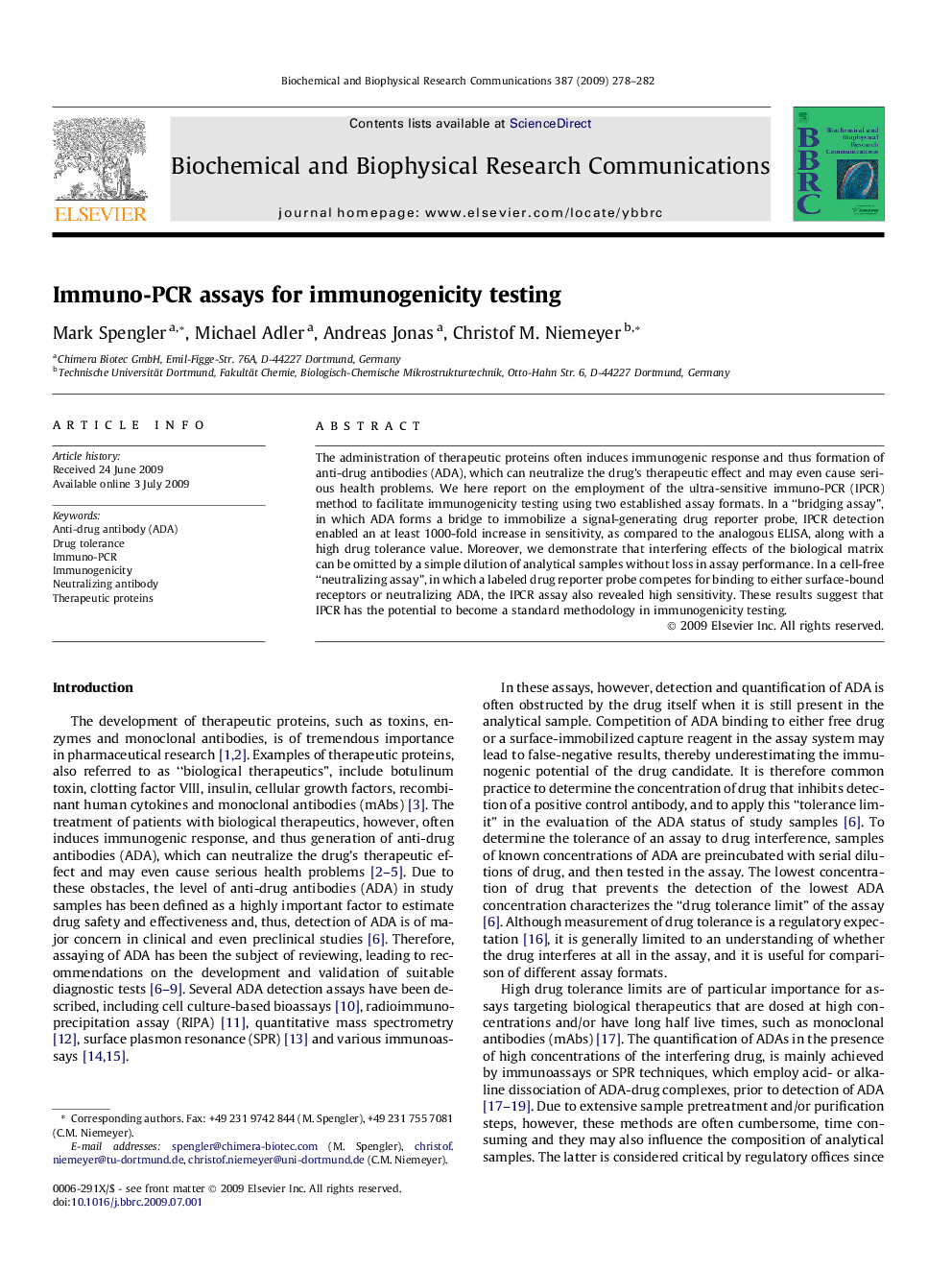| Article ID | Journal | Published Year | Pages | File Type |
|---|---|---|---|---|
| 1933782 | Biochemical and Biophysical Research Communications | 2009 | 5 Pages |
The administration of therapeutic proteins often induces immunogenic response and thus formation of anti-drug antibodies (ADA), which can neutralize the drug’s therapeutic effect and may even cause serious health problems. We here report on the employment of the ultra-sensitive immuno-PCR (IPCR) method to facilitate immunogenicity testing using two established assay formats. In a “bridging assay”, in which ADA forms a bridge to immobilize a signal-generating drug reporter probe, IPCR detection enabled an at least 1000-fold increase in sensitivity, as compared to the analogous ELISA, along with a high drug tolerance value. Moreover, we demonstrate that interfering effects of the biological matrix can be omitted by a simple dilution of analytical samples without loss in assay performance. In a cell-free “neutralizing assay”, in which a labeled drug reporter probe competes for binding to either surface-bound receptors or neutralizing ADA, the IPCR assay also revealed high sensitivity. These results suggest that IPCR has the potential to become a standard methodology in immunogenicity testing.
